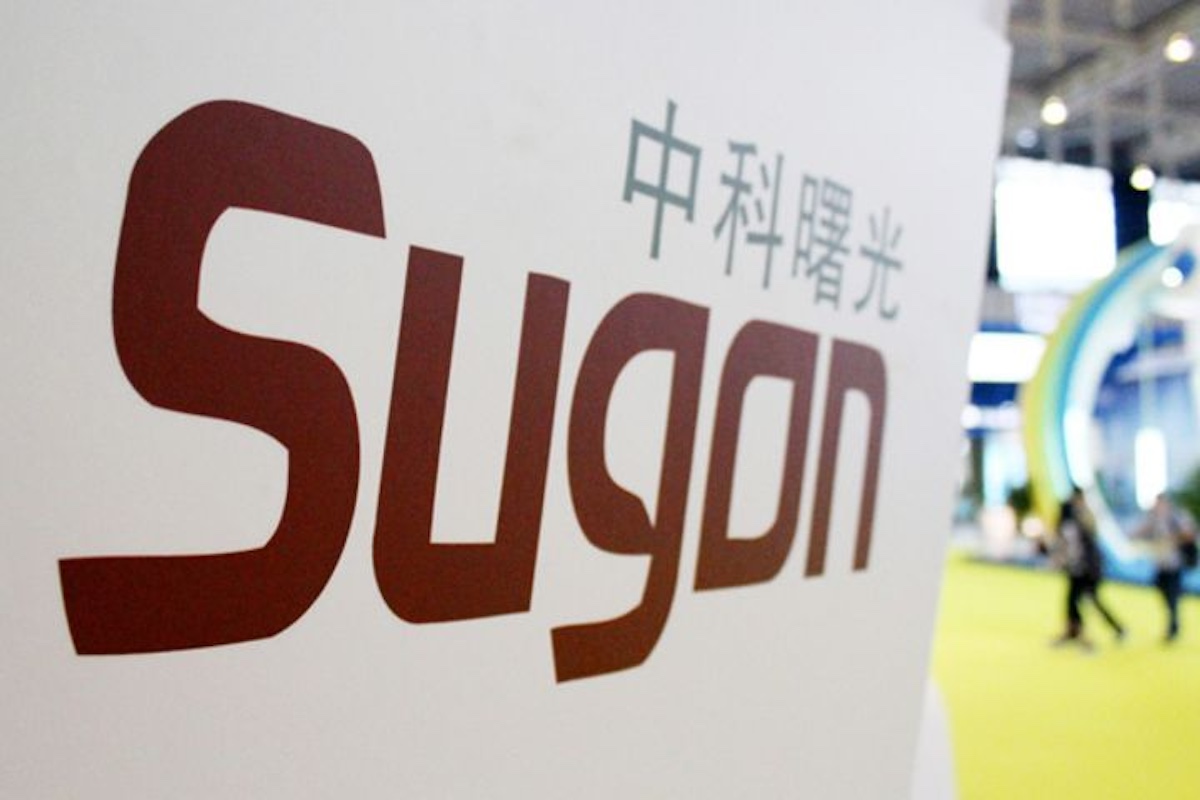A Chinese computer server supplier that was set up four and a half years ago to circumvent US sanctions has been accused of selling products to sanctioned Chinese firms.
Nettrix, a Beijing-based firm established in December 2019, has sold computer servers that used Intel and Nvidia’s chips and Microsoft’s software to sanctioned Chinese companies and institutions, according to a report published by the New York Times on August 4.
The report said all of Nettrix’s top executives came from Sugon, which was sanctioned by the US Commerce Department’s Bureau of Industry and Security (BIS) in June 2019. It said the executives are still sharing a complex with Sugon and other companies owned by the Chinese Academy of Sciences (CAS) in Kunshan, Suzhou.
Citing procurement documents, the New York Times report said Nettrix has sold servers to several of the same organizations as Sugon while its customers also include universities that host defense laboratories and cybersecurity firms that work with the military and on China’s Great Firewall.
Nettrix said in a statement that it did not help Sugon bypass US sanctions, and it is not part of a network connected to the CAS. It stressed that its sale did not break any rules. Sugon said it had laid off hundreds of employees after it was sanctioned by the US in 2019.
Public information gathered by Asia Times showed that Qin Xiaoning, who was praised as one of 14 “outstanding” Chinese Communist Party members in 2018, led about 200 former Sugon employees to form Nettrix in December 2019 in order to maintain access to US processors. She was rewarded in an alternative way in 2022.
Qin and Nettrix’s Vice President Wei Bingqing and Chief Technology Officer Zhao Lei had worked for Sugon, or Dawning Information Industry Co Ltd, for more than a decade before 2019.
“It’s a good time to set up Nettrix despite many uncertainties,” Qin told the media in an interview in April 2020.
In December 2022, Nettrix had already formed partnerships with more than a hundred suppliers including Intel, Nvidia, Broadcom and VMware. Last year, it became the third-largest graphic processing unit (GPU) server supplier in China, following Inspur and Tsinghua Unigroiup’s H3C.
In March this year, the company launched the Nettrix AI Open Lab in Tongxiang City in Jiaxing, Zhejiang province. The facility has 128 artificial intelligence (AI) servers, which mainly use Intel processors and Nvidia-made GPUs.
Qin’s bosses
On February 1 this year, Sugon’s spokesperson told investors that the company has no shareholding relations, but only business relations, with Nettrix.
When Sugon launched its Intel-powered I620-G30 server in 2021, its former unit Suma Information Industry Co Ltd and Nettrix were mentioned in a marketing brochure. But the BIS did not take any action at the time.
“This is an enormously difficult job, and I’m under no illusions that we are doing it perfectly,” US Commerce Secretary Gina Raimondo, who oversees the BIS, was quoted as saying in the latest New York Times report.
She said her team’s work was impeded by limited resources as the BIS only received an annual budget of US$191 million.
When issuing an export license, the US government should initially license a very limited amount of trade and then do the end-use-check before it licenses more, Nazak Nikakhtar, former assistant secretary for industry and analysis at the US Department of Commerce’s International Trade Administration (ITA), told Asia Times in an interview in June.
In fact, it’s not difficult to trace the personnel relations of the top executives of Sugon, Suma and Nettrix.
Back in 2014, when Sugon went public in Shanghai, the company was led by President Li Jun and Senior Vice President Nie Hua while then 35-year-old Qin ranked No. 19 among 321 core staff members eligible to receive stock options.
After the US added Sugon to its Entity List in June 2019, Sugon sold its entire 30% stake in Suma to a firm legally represented by Nie in July of the same year. Suma remained a unit of the CAS.
Just before Qin founded Nettrix in December 2019, she was still Sugon’s vice president and Systems Products Division head. Nettrix has never publicly disclosed its shareholding structure.
While Sugon (a source of SOE customers), Suma (a manufacturer of computer servers) and Nettrix (a supplier of foreign chips) have been individual companies since 2019, Li and Nie have continued as Qin’s bosses as of now.
The trio are partners in Tianjin Haifu Tianding Technology Partnership (Limited Partnership), which owns a 12.86% stake in the sanctioned fabless chip designer Hygon Information Technology Co Ltd, according to Hygon’s listing prospectus published in July 2022. Hygon now has a market capitalization of 181.2 billion yuan ($25.34 billion).
Through her 1.11% stake in Tianjin Haifu Tianding, Qin indirectly owned a 0.14% stake in Hygon. The stake is now worth 259 million yuan.
Sugon’s future plan
Over the past four and a half years, Sugon has bought time to gradually shift to using Hygon and Loongson processors.
Hygon’s X86 processor, which uses AMD’s instruction set architecture, is made by Samsung and GlobalFoundries. Loongson’s 3A5000 processor, which uses the company’s own architecture, is made by Taiwan-run TSMC’s fab in Nanjing, China.
A Shanghai-based netizen who claims to be a whistleblower claimed on July 10 that Sugon will gradually fade out from the computer server market due to “some recent big changes.”
But a Zhejiang-based netizen clarified that Sugon will only stop selling computer servers that use foreign chips but will continue to focus on those powered by local chips.
Read: China hawk: Fix symbolic, ineffective US sanctions
Follow Jeff Pao on X: @jeffpao3



whistle blower yeah,